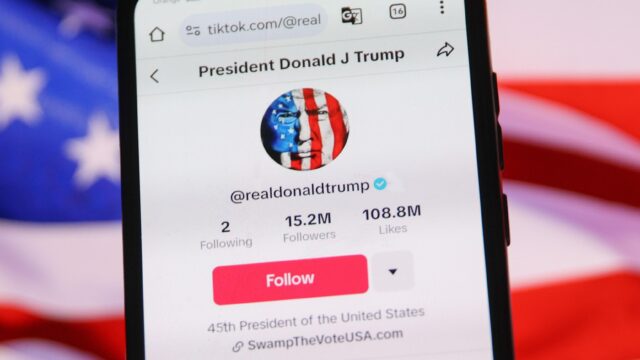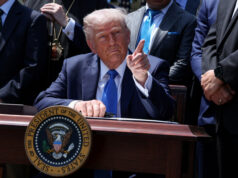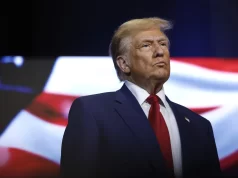
President Donald Trump has suggested that tariff reductions on Chinese imports could be used as leverage in negotiations over the sale of TikTok, a social media platform used by 170 million Americans. His remarks highlight the broader economic and geopolitical stakes in the ongoing dispute over TikTok’s ownership, as well as its implications for US-China relations.
TikTok’s Sale and National Security Concerns
The US government has been pressuring ByteDance, TikTok’s Chinese parent company, to sell its American operations to a non-Chinese buyer. Lawmakers cite national security concerns over potential data access by the Chinese government. An April 5 deadline has been set for the sale, with TikTok facing a potential nationwide ban if a deal is not reached.
Despite this deadline, President Trump has delayed strict enforcement, suggesting that Beijing’s approval of the sale remains a crucial factor. His statement that “every point in tariffs is worth more than TikTok” signals a strategic approach, tying the app’s fate to broader trade negotiations.
The Role of Tariffs
As part of his economic strategy, Trump has increased tariffs on Chinese imports to 20%, impacting a wide range of goods. By suggesting a possible tariff reduction in exchange for the successful sale of TikTok, Trump is using the platform’s fate as a bargaining chip in US-China trade relations.
This move reflects a shift from previous US policy, which primarily focused on outright bans or forced divestitures of Chinese-owned technology firms without tying them directly to tariff policies.
Potential Buyers and Market Impact
TikTok’s US operations are valued between $10 billion and $50 billion, with potential American buyers exploring acquisition options. However, securing a buyer is complicated by the need for approval from both Washington and Beijing. If the sale proceeds, it could reshape the competitive landscape of the social media industry while influencing the broader tech trade war between the two nations.
Conclusion
The ongoing TikTok sale negotiations highlight the intersection of national security, trade policy, and economic strategy. By linking tariffs to the fate of TikTok, President Trump is signaling a more complex approach to US-China relations. With the April 5 deadline approaching, all eyes are on whether a resolution can be reached that satisfies both economic and security concerns while maintaining access to the popular platform for millions of users.



